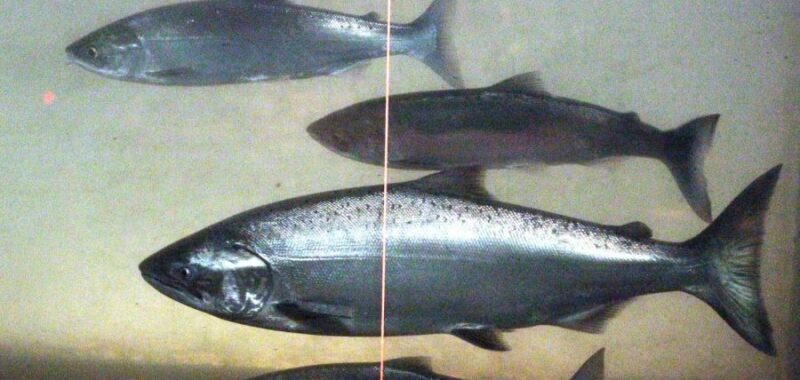
Washington Gov. Jay Inslee (D) has directed state agencies to take immediate actions aimed at safeguarding the region’s dwindling salmon population, while warning the incoming Trump administration to refrain from backtracking on federal commitments.
In an executive order signed this week, Inslee asked state officials and organizations to strengthen their work on restoring the Columbia River Basin’s salmon population, advance science-based solutions, revive habitats and bring together diverse interest groups.
“Salmon have inhabited Washington for millions of years, but their time is running out,” Inslee said in a statement. “We cannot waver for a moment, now or in the future, in our work to restore these runs.”
The order emphasizes Washington’s commitment to collaborating with other stakeholders, referencing a December 2023 partnership with Oregon and the Confederated Tribes and Bands of the Yakama Nation, the Confederated Tribes of the Umatilla Indian Reservation, the Nez Perce Tribe and the Confederated Tribes of the Warm Springs — collectively known as the “Six Sovereigns.”
At the time, the multi-state and tribal parties agreed to a comprehensive package of actions called the Columbia Basin Restoration Initiative, to address the salmon and steelhead decline, as well as climate, energy and tribal justice issues challenging the region.
In parallel, the federal government also committed to restoring populations of Columbia and Snake River salmon and steelhead through a stay of litigation with the Six Sovereigns.
Specifically, the Biden administration directed federal agencies to prioritize the restoration of these species and other native fish populations, estimating that these efforts would bring more than $1 billion in new federal investments to the region.
Fulfilling both the Columbia Basin Restoration Initiative and federal goals could help bolster the State of Washington’s broader decarbonization and climate goals, while also honoring tribal treaties, resolving ongoing lawsuits and enhancing watershed resilience, according to the order.
“It is my administration’s policy to take full advantage of this unique moment in time and unprecedented window of opportunity through coordinated state leadership,” Inslee wrote in the order.
Inslee, a three-term governor and ardent critic of President-elect Trump, decided last year not to run for a fourth term and will leave office in January.
He stressed in the order that he would be supporting not only collaborative restoration efforts across the state, but also the “full implementation” of federal commitments.
“These fish and these waters are our responsibility to defend,” Inslee said in a statement. “We’ve charted a course for salmon recovery, and this order holds us to it.”
Following the issuance of the executive order, the organization Earthjustice — which has headed longstanding litigative efforts to protect the Columbia River Basin — praised the governor’s decision to move forward.
“We applaud Gov. Inslee for his exemplary leadership to restore the Pacific Northwest’s native fisheries to healthy and abundant levels, while also helping Washington transition to a clean, affordable, and resilient energy future,” Earthjustice Attorney Amanda Goodin said in a statement.
Abby Tinsley, vice president for conservation policy for the National Wildlife Federation, touted the order as “a critical step that builds the momentum needed to save the region’s renowned salmon runs from extinction, and — of paramount importance — make good on commitments to Northwest Tribes.”
In an explainer issued alongside the executive order, the governor’s office provided words of warning to the incoming Trump administration, stressing that if the federal government backs away from its commitments, it will face “a salvo of litigation for breach of Tribal treaty rights affirmed by precedent.
“We need to think of our state and its waters as borrowed rather than inherited,” Inslee said. “We owe future generations a healthy state.”

